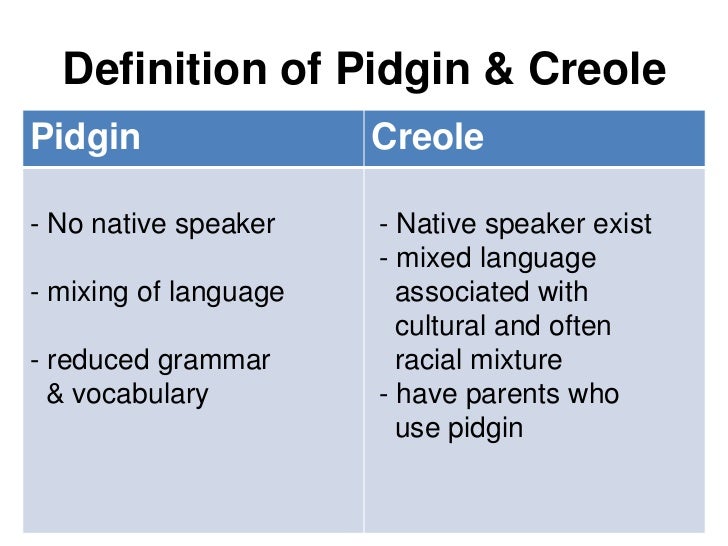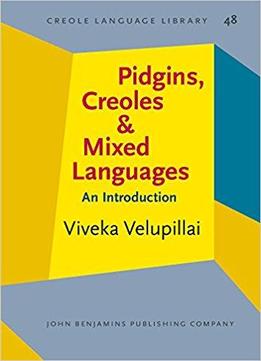

Subject null arguments in creole languages. Journal of Pidgin and Creole Languages 26(1). Creoles are typologically distinct from non-creoles. In Kouwenberg, Silvia & Singler, John Victor (eds.), Handbook of Pidgin and Creole Studies, Oxford: Wiley-Blackwell, 130-57.īakker, Peter, Aymeric Daval-Markussen, Mikael Parkvall & Ingo Plag. Pidgins versus creoles and pidgincreoles. Oxford: Oxford University Press.īakker, Peter. The Oxford handbook of linguistic typology, 100-127. Comparative Afro-American: An historical-comparative study of English-based Afro-American dialects.

I therefore propose a new sampling method that controls for genealogical/areal relatedness of both the substrate and the lexifier, which I call “bi-clan” control (where “clan” is a cover term for linguistic families and convergence areas).Ĭreole languages, creole universals, sampling, genealogical and areal bias, grammaticalizationĪlleyne, Mervyn C.

European (lexifier) + Macro-Sudan (substrate). But many of these Atlantic creoles have the same genealogical/areal profile, i.e. serial verbs, double-object constructions, or obligatory use of overt pronominal subjects. In all available comparative creoles studies, European-based Atlantic creoles are strongly overrepresented, so that typical features of these languages are taken as “pan-creole” features, e.g. Sampling for genealogical and areal control has been a much discussed topic within world-wide typology, but not yet in comparative creolistics. But these authors have generally overlooked that cross-creole generalizations require representative sampling, especially when working quantitatively. Bickerton (1981), McWhorter (2001), and more recently Peter Bakker and Ayméric Daval-Markussen. Some creolists have claimed that indeed the answer to both questions is yes, e.g.

One major research question in creole studies has been whether the social/diachronic circumstances of the creolizaton processes are unique, and if so, whether this uniqueness of the evolution of creoles also leads to unique structural changes, which are reflected in a unique structural profile.


 0 kommentar(er)
0 kommentar(er)
